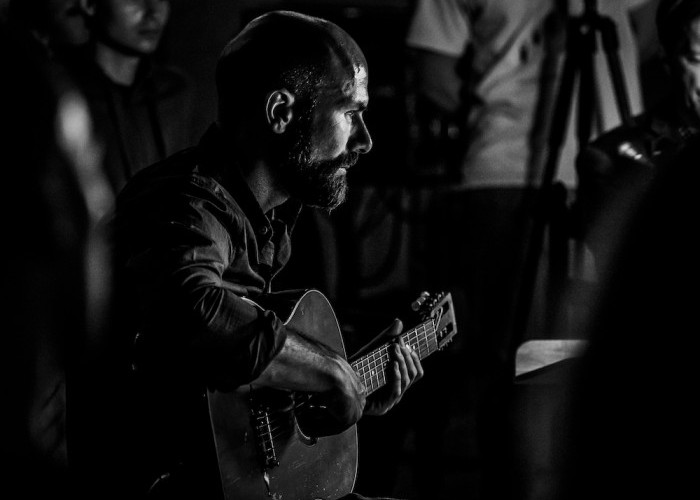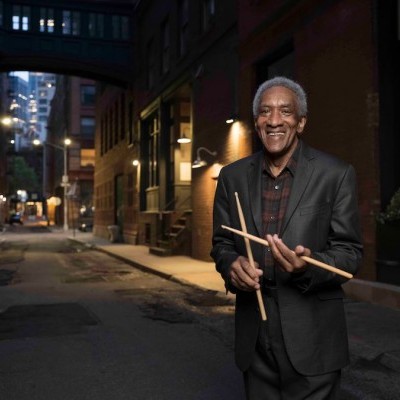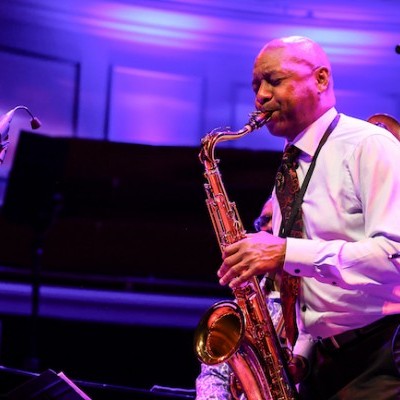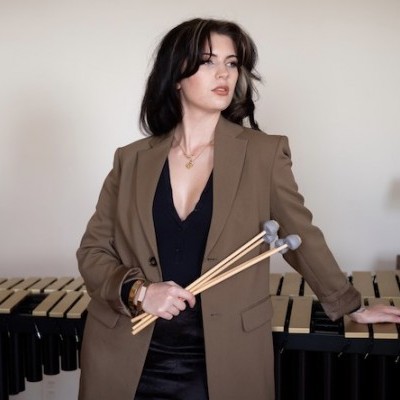Jun 3, 2025 11:25 AM
In Memoriam: Al Foster, 1943–2025
Al Foster, a drummer regarded for his fluency across the bebop, post-bop and funk/fusion lineages of jazz, died May 28…

While jazz has been a common thread, the work of Danish guitarist Mark Solborg’s has veered well outside any clear parameters.
(Photo: Peter Gannushkin)Danish guitarist Mark Solborg has been a ubiquitous presence on Copenhagen’s creative music scene for two decades, operating in many diverse contexts—whether free improvisation, chamber jazz, post-bop or film scores. He’s a deeply curious musician with a predilection for collaboration, but he’s never allowed his restlessness trump his commitment to ensemble-oriented selflessness. Surveying his voluminous discography reveals a knack for fitting in, enhancing the playing of his cohort and building a collective sound. “Growing up, I became increasingly bored with the more onanistic side of music,” he said. “I often found that when the music wasn’t working, it was due to the fact that one or more in the group was not contributing to the collective or the music—but focusing on themselves solely.”
Solborg, 46, embodies the other side of the music. On Foil (ILK), the second album by his meditatively lyric trio with reed player Francesco Bigoni and pianist Emanuele Maniscalco, he frequently limns the delicate unison lines of his partners, either with atmospheric shading or harmony-rich counterpoint: chiming tangles of sound here, quietly needling corkscrews there. For his 2016 duet album with brash trumpeter Herb Robertson, Tuesday Prayers (ILK), he produces humid arpeggios that hang in the air for his partner to whinny and slalom through, as well as shaping abstract tangles of sounds that pile up thick atmospheric complements that never impinge on the horn lines. On the 2017 eponymous debut from the collective Omdrejninger, Solborg cedes the foreground to some of improvised music’s most singular voices, including trumpeter Axel Dörner and percussionist Ingar Zach, generating music that fills the sound field with meticulously shaped harmonic clouds, curlicues and accents, some of which were radically processed in real-time by ensemble member Christian Skjødt.
“For me, it became a mantra, an ambition,” Solborg explained. “We all want to look or sound good, show what we can do. We all contain vanity and we need to confirm the story we tell about ourselves, but what does the music need? Maybe it needs you to perform a music explosion of incredible virtuosity, maybe it needs you to stop playing. For a long time now, I have surely been more focused on the fulfillment of the overall musical expression and vision than on casting myself as main soloist.” Such selfless thinking has allowed the guitarist to thrive in all kinds of contexts and to develop an impressive aesthetic that spans genres and disciplines.
Growing up in Albertslund, a Copenhagen suburb, his politically progressive parents exposed him to all sorts of music and visual art, and from the time he turned 11, he’s been committed to playing guitar.
While jazz has been a common thread, his work has veered well outside any clear parameters. He interrupted his education at the Rhythmic Music Conservatory in 1999 to spend a year in New York, where he studied, absorbed live music and played, building connections that would be important on his earliest recordings, which have featured mentors like Robertson, Evan Parker and Chris Speed. But as time has passed, his playing’s connection to jazz has grown more oblique, although his long-running three-sax quintet On Dog, which is gearing up to make its first new recordings in five years, reveals the ongoing influence of Tim Berne’s most labyrinthine, jagged work. His versatility and purpose-driven ethos has been deployed to score music for 20 films and plays since 1999—to say nothing of more than 75 album covers that included his artwork and design. “I like to work,” Solborg said. “I like using my tools and learning how to use new ones.”
The guitarist has been working on a new solo guitar endeavor exploring space—something he’s worked with previously in Omdrejninger—manipulating his virtuosic excursions through the dispersion of sound and with digital effects in a setting that prizes those manipulations as much as what his hands do. He also continues to play in a recently convened improvising trio with superb Portuguese trumpeter Susana Santos Silva and the legendary German drummer Paul Lovens—with more concerts planned through 2019. DB

Foster was truly a drummer to the stars, including Miles Davis, Sonny Rollins and Joe Henderson.
Jun 3, 2025 11:25 AM
Al Foster, a drummer regarded for his fluency across the bebop, post-bop and funk/fusion lineages of jazz, died May 28…

“Branford’s playing has steadily improved,” says younger brother Wynton Marsalis. “He’s just gotten more and more serious.”
May 20, 2025 11:58 AM
Branford Marsalis was on the road again. Coffee cup in hand, the saxophonist — sporting a gray hoodie and a look of…

“What did I want more of when I was this age?” Sasha Berliner asks when she’s in her teaching mode.
May 13, 2025 12:39 PM
Part of the jazz vibraphone conversation since her late teens, Sasha Berliner has long come across as a fully formed…

Roscoe Mitchell will receive a Lifetime Achievement award at this year’s Vision Festival.
May 27, 2025 6:21 PM
Arts for Art has announced the full lineup for the 2025 Vision Festival, which will run June 2–7 at Roulette…

Benny Benack III and his quartet took the Midwest Jazz Collective’s route for a test run this spring.
Jun 3, 2025 10:31 AM
The time and labor required to tour is, for many musicians, daunting at best and prohibitive at worst. It’s hardly…